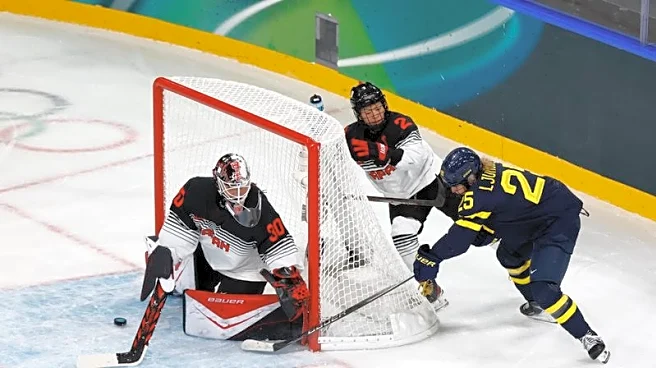What's Happening?
Capcom has announced a collaboration between Resident Evil and Japanese metal group BABYMETAL, set to debut in 2026. This collaboration includes special merchandise to coincide with the series' 30th anniversary. However, fans are divided over the focus
on Lady Dimitrescu, a character from Resident Evil: Village, rather than legacy characters like Jill Valentine and Chris Redfield. Social media users have expressed their preference for the franchise's original characters, questioning the emphasis on Dimitrescu for promotional activities. Despite the controversy, Capcom continues to leverage Dimitrescu's popularity, highlighted by her standout role in Resident Evil: Village and the iconic performance by voice actor Maggie Robertson.
Why It's Important?
The focus on Lady Dimitrescu reflects Capcom's strategy to capitalize on popular characters for marketing purposes. This decision highlights the evolving dynamics within the gaming industry, where character popularity can significantly influence promotional strategies. The debate underscores the tension between honoring legacy characters and adapting to contemporary fan preferences. This situation may impact future marketing decisions and character development within the Resident Evil franchise, potentially affecting fan engagement and sales. The emphasis on newer characters could alienate long-time fans who value the franchise's original storyline and characters.
What's Next?
As Resident Evil approaches its 30th anniversary, Capcom may face pressure to balance the promotion of new and legacy characters. The upcoming release of Resident Evil Requiem in 2026 could provide an opportunity to revisit classic elements of the franchise, potentially appeasing fans who favor the original storyline. Capcom's future marketing strategies may need to address fan concerns to maintain engagement and support. Additionally, the collaboration with BABYMETAL could introduce Resident Evil to new audiences, expanding its reach and influence in the gaming community.
Beyond the Headlines
The focus on Lady Dimitrescu raises questions about the cultural impact of character design and marketing in video games. Her popularity may reflect broader trends in gaming, where visually striking and unique characters can drive engagement and sales. This situation also highlights the role of social media in shaping fan discourse and influencing corporate decisions. As gaming continues to evolve, companies may increasingly rely on fan feedback to guide character development and marketing strategies.
















